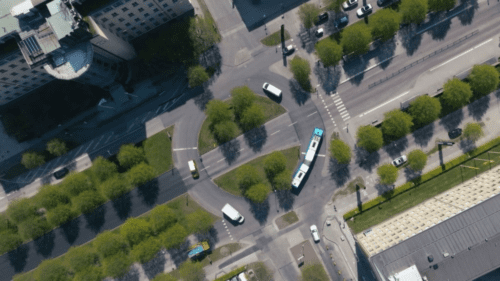
Volvo Buses says it has high ambitions when it comes to sustainability, and by 2040 the company is aiming to have a fully decarbonised supply chain. To help achieve this, Volvo Buses says it and its suppliers plan to make use of artificial intelligence.
The company has set itself the target of reducing its greenhouse gas emissions in its supply chain by 25% in 2025, and by 100% by 2040. The ‘cradle-to-grave’ approach to greenhouse gas emissions means that reductions must be made across its full value chain. “We need to look at the supply chain to be able to reach our goals. That includes working together with our supply partners to reduce their greenhouse gas footprint too,” explained SVP for Purchasing at Volvo Buses Kitty Muffolini.
To better support its suppliers in their decarbonisation efforts, Volvo Buses says that as a first step, it will take data from its own systems and gather all the details on each supplier and their respective part or component in a bus or coach. This will be combined with data from external environmental databases to calculate the greenhouse gas emissions of each material included in the parts, the company says.
“AI will give us solid fact-based information and accurate data that we can then analyse and act on. We can also see carbon hotspots, making it easier to prioritise activities in collaboration with our supplier partners,” said Kitty. Once all this information is collected into one system, Volvo says AI will be used to generate suggestions on how each supplier can reduce their greenhouse gases. It will also give proposals for parts that can be exchanged and replaced with lower emission alternatives.
The new AI tool is expected to be fully operational by the beginning of 2025, with an ambition to use AI-based insights as a basis for discussions with each supplier to create a roadmap with set activities and goals.
“This will be a tool for everyone working with purchasing within Volvo Buses and Volvo Group,” added Kitty. “It will be used to initiate discussions and be transparent together with the supplier. We are totally convinced that they have the same ambitions as us and that collaboration is the way forward to reduce greenhouse gases.”

